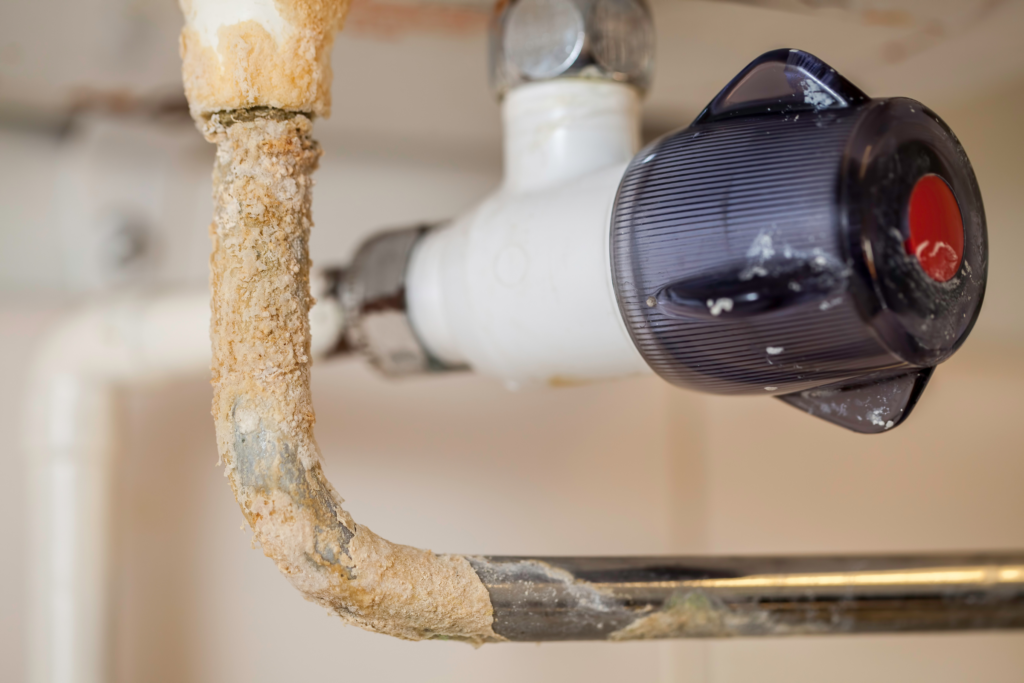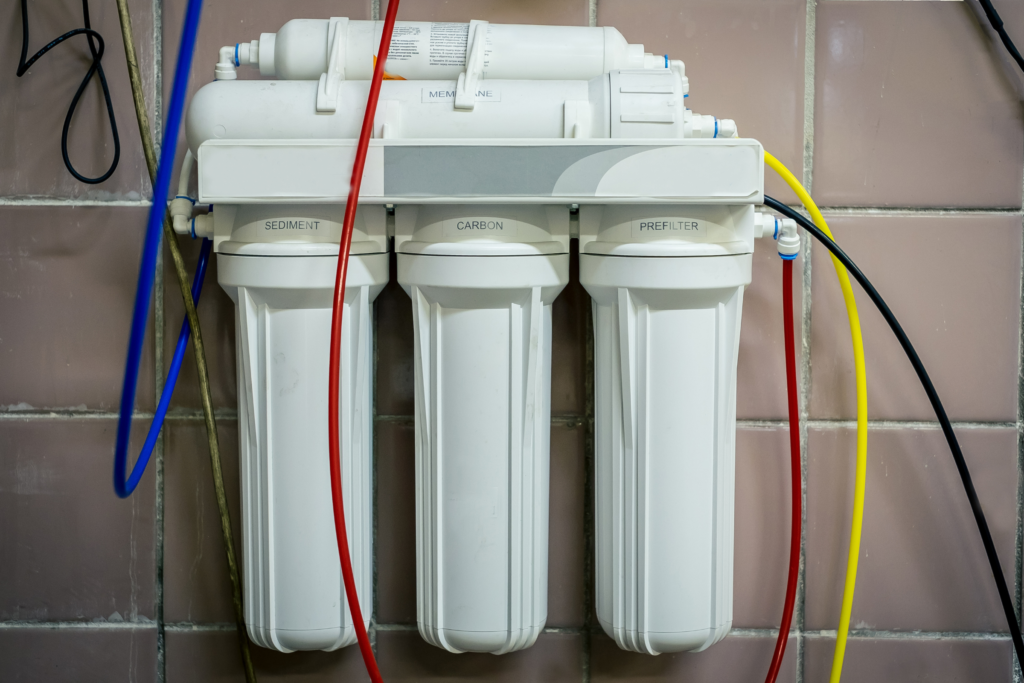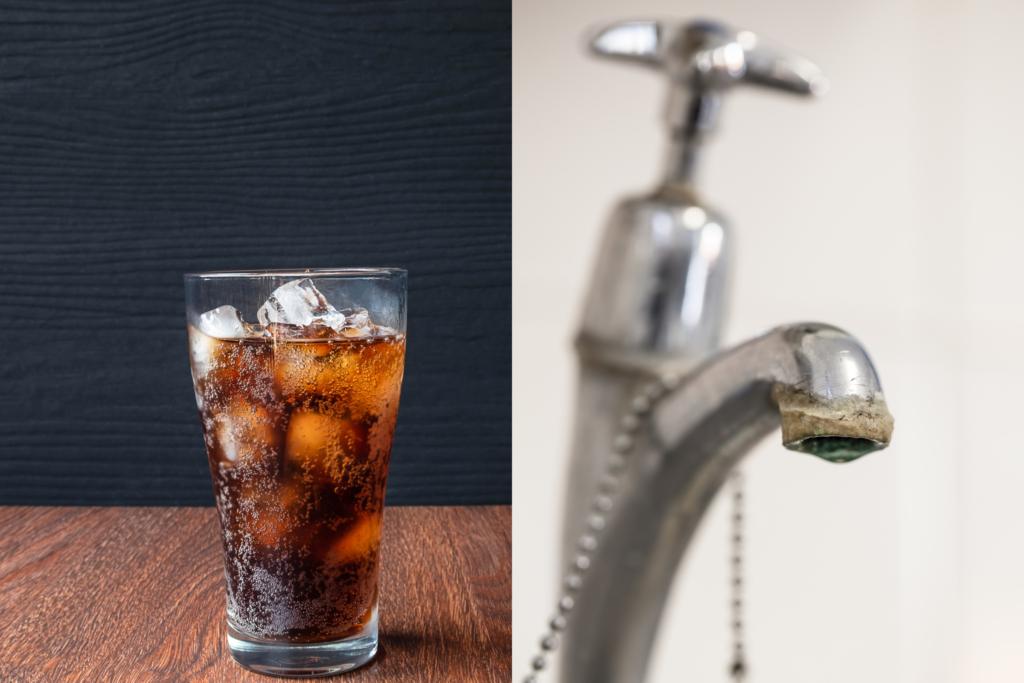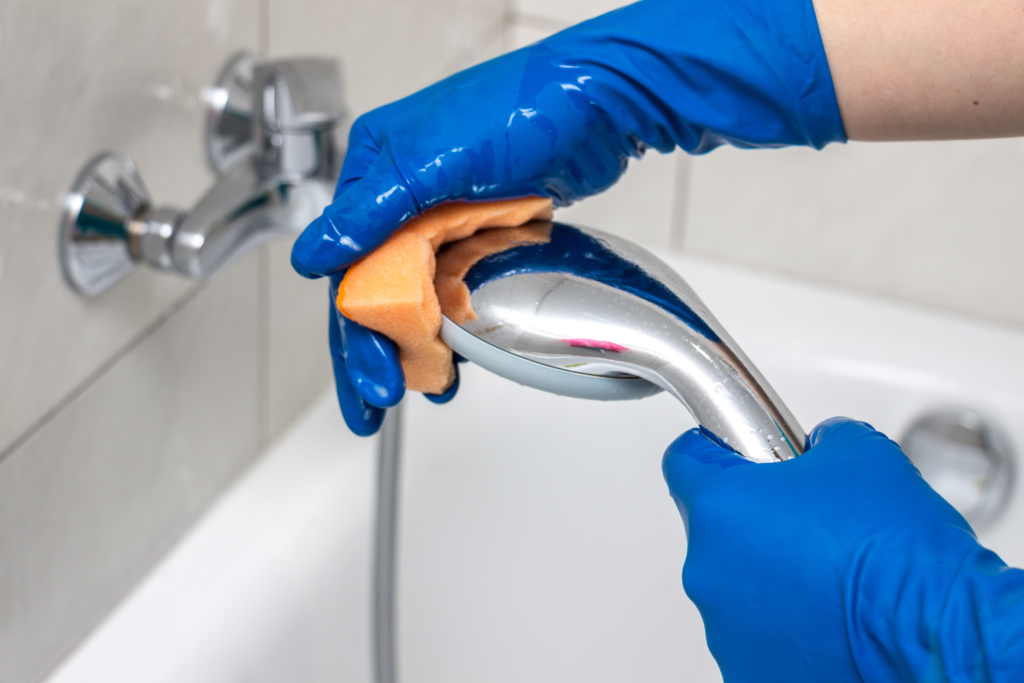Do Water Filters Remove Limescale from Tap Water? (And Is it Calcium)
Limescale is a hard, chalky substance left on appliances when hard water evaporates. It contains calcium, magnesium, and carbonate ions in hard water.
Limescale contributes to the deterioration of appliances, so it’s a good idea to get rid of it before it causes problems. Do water filters remove limescale?
Water filters help remove limescale by removing the scale-forming minerals (scale inhibition) through ion exchange or blocking them using reverse osmosis and nanofiltration membranes. However, filters do not remove limescale that has already formed on surfaces, which may require other methods like blasting with water, scraping, or washing with acidic liquids.
Read on to learn more about what causes limescale to form and what kind of filter you need to remove from your home water supply.
Where does limescale come from?
Limescale is formed when water containing dissolved calcium bicarbonate (temporary hard water) is heated and evaporates, leaving behind insoluble calcium carbonate.
Boiling permanent hard water does not result in scale formation since calcium sulfate, which causes permanent hardness, does not decompose when heated. Scales also form when calcium and magnesium ions in water react with compounds found in soaps to form insoluble scum.
The undesirability of limescale comes from aesthetic, efficiency, and cost considerations. When it forms on surfaces, it makes them look dirty and ugly. Scale formation also clogs water pipes, thereby reducing rates of flow. It also reduces the capacity to transfer heat in appliances like kettles, coffee machines, washing machines, and boilers, leading to high energy use and increased maintenance costs.

Additionally, it introduces stress on joints which can cause damage.
Despite its harmful effects, limescale (calcium carbonate) has been used for centuries in construction as the starting ingredient for building lime and the manufacturing of classroom chalk. In addition to that, it is a significant ingredient in making paints, ceramics, kids’ nappies, adhesives, fillers, and stained glass windows when mixed with putty.
Limescale generally poses little or no danger to human health as its presence in water has been linked to the formation of strong bones and teeth, apart from being a solid antacid and a rich source of calcium.
Do water filters remove limescale?
Water filters prevent limescale buildup, but do they remove it?
Water filters remove minerals from your tap water that cause limescale buildup. A new water filter will not remove existing limescale buildup, but it will prevent new limescale from forming. Water filters use ion exchange, nanofiltration, and reverse osmosis to prevent limescale buildup on your appliances.
Proactively removing limescale using water filters is the easiest way to avoid it. You can clean limescale buildup using simple at-home solutions like vinegar or citric acid.
Finding the best water filter for limescale is challenging, as every home’s needs differ. We’ll discuss how to remove heavy limescale buildup later in the article.
Is limescale the same as calcium?
Calcium occurs naturally in rocks with non-metal ions. It’s different from what you find in limescale.
Limescale is not the same as calcium. Limescale is a water-insoluble, white, and chalky substance in kettles, washing machines, boilers, and water pipes. It is composed mainly of calcium carbonate (lime), magnesium carbonate, manganese carbonate, and traces of iron-containing compounds, which may add a reddish-brown color when present.
On the contrary, calcium is a reactive metallic element that occurs naturally in rocks in combination with non-metal ions such as carbonates, sulfates, silicates, nitrates, and chlorides.
What removes limescale from water?
The most common way of removing limescale from water is ion exchange (IX), which uses resins rich in negative ions to trade calcium and magnesium ions in hard water with sodium, thus eliminating scale. The choice of ion exchange resins should be made after testing the water to know what needs to be removed or reduced.
Because it works based on the principle of selective removal according to the ionic strength of the charged ions in water and the resin, no particular resin is specific for a given ion. Ion exchange processes are also mostly reversible; hence the exchange resins can be renewed and used again.
A typical IX system consists of a pressure tank containing sulfonated polystyrene beads that can replace hard ions with soft ions like sodium. A tank filled with concentrated sodium chloride (brine) is then connected to regenerate the resin at regular intervals when saturated.
Nanofiltration (NF) and reverse osmosis (RO) are also viable methods for removing limescale, and some filter brands normally use them in addition to ion exchange (IX). NF uses nano filters with pores smaller than one nanometer to block scale-causing ions which are large in diameter and cannot pass through them.
It operates at lower pressures than RO, uses less water, and may be used for the selective removal of ions that cause scaling (membrane softening). In RO, pressure greater than the normal osmotic pressure and an ultra-thin membrane is used to force water molecules from their region of high concentration to their region of low concentration across a semi-permeable membrane, leaving behind the scale minerals.
Whole-home filtration systems are one of the best ways to prevent limescale buildup on your faucets and appliances.

Do Brita filters filter out lime?
Yes, some Brita water filters contain ion exchange resin which removes calcium and magnesium ions, thereby eliminating limescale. They are NSF-certified products tested to meet the NSF/ANSI 53 sanitation and efficacy standards.
Many household water treatment systems, like the entire house, under-sink, and refrigerator filters, also contain reverse osmosis and distillation units. These may be much more expensive and complex but are the most effective at removing limescale.
Does Coke get rid of limescale?
Coca-Cola is a viable solution for removing limescale. Its carbonation helps break down limescale buildup and makes it easier to eliminate with other solutions.
Coke contains low concentrations of citric and phosphoric acids, which lowers its pH level and reacts with limescale. Carbonic acid forms when carbon dioxide makes it fizzy and dissolves in water. Being weakly acidic, Coca-Cola requires prolonged exposure to the limescale to dissolve it.
Coke is a more cost-effective method of removing limescale than other liquids like vinegar and hydrochloric acid.

How do you get rid of heavy limescale?
When limescale deposits have grown on a surface for a long time, filtration becomes out of the question, as filters only remove limescale while still in the water. Removing heavy limescale buildup requires a more aggressive approach.
To remove heavy limescale, use acids that react with the limescale to form soluble salts that can be washed away with water. Strong acids like hydrochloric acid are recommended for heavy scale developed in hard-to-reach areas like inside toilet bowls. Vinegar (acetic acid), citric acid, lactic acid, formic acid, or Coke can be used on other appliances.
Scrubbing your appliances with less abrasive mixtures is a safe start to removing limescale. You might need to move to harsher mixes to eliminate more stubborn limescale buildup.

Summary of do water filters remove limescale?
To sum it all up, water filtration systems have been hailed as the green choice and the go-to method for removing limescale and other contaminants from the water.
Techniques like scraping, hydro-blasting, and aggressive chemicals have been found to shorten the life of pipes and machinery. It is not advisable to ignore limescale until it becomes problematic, and therefore, the only sure way of preventing its formation is by using water filtration. You should consider investing in one incorporating at least two or three filtration stages for maximum protection.
Here is a good buying guide that explains the different options you have.
Let Us Know How We’re Doing!
Did this expertly prepared resource answer your question?
Do you have another question about home maintenance, home improvement projects, home appliance repair, or something else?
Get more information, send in questions and keep the discussion going by contacting the I’ll Just Fix It Myself company customer service team at at 1-800-928-1490 or Email us at [email protected]
